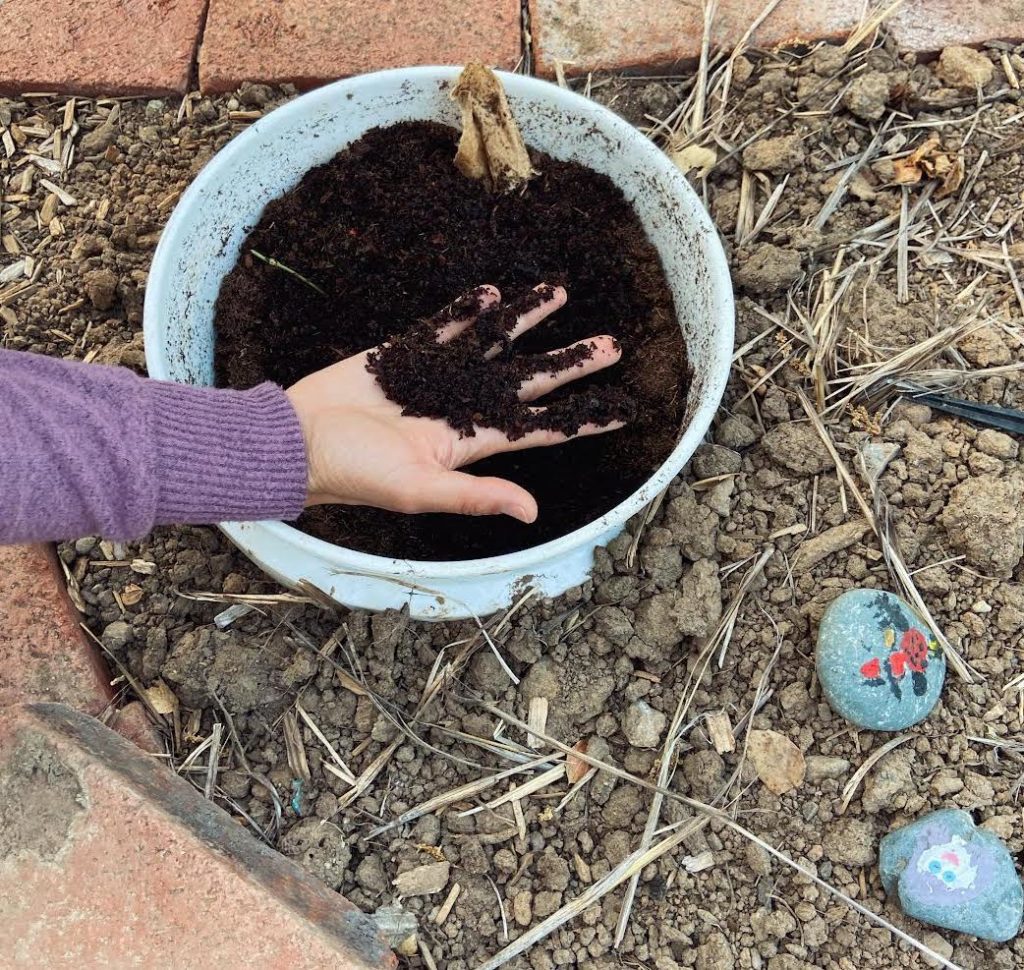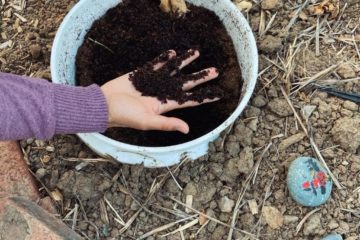Written by Isabel Realyvasquez, Grant Writing & Development Intern
We at EGC use sustainable practices to grow the food that sustains us! When it comes to caring for the soil that our fruits and vegetables grow on through organic means, we find that some of the best workers for the job are the critters and bugs that live in it! Some bugs can make many people feel uneasy. Many people use pesticides to remove unwanted insects that feed on their crops. Pesticides, however, often have the unintentional yet devastating side-effect of harming many good bugs and the food that ends up on your plate. Insects and earth-dwelling invertebrates are critical to the health and organic regeneration of the soil, being some of the beneficial creatures that can break down dead materials, aerate the earth, and eat undesirable bugs. Here, you’ll find out what critters are good for the soil and why they belong in your green spaces!
Earthworms (Lumbricina)
As Earth Day approaches, tip your hat to the critters that love our plant the best: earthworms. Technically classified as an animal, earthworms are great little guys to find in your garden! Fond of loamy soil, they produce “castings” that act as an organic fertilizer for the soil. This nutrient-rich waste improves soil aeration and drainage and wards off unwanted bugs such as aphids and spider mites (Tilley 2021). The presence of these gentle tunnelers is a key indicator of the health of your garden. As earthworms turn over the soil they leave nutrients in their wake and upturn microflora that help plants grow (Singh 2021). Next time you scoop up a clump of dirt, appreciate the busy workers that keep it thriving! After all, if you protect the earthworms in your garden, “the land becomes, as if by magic, more fertile” (Howard 2019).
Roly-Polies or Pillbugs (Armadillidiidae)
You have most likely seen them roll into a ball after coming near them, appearing almost shy! But roly-polies certainly do not shy away from hard work. They are instrumental soil-living crustaceans that eat dead plant matter and decompose other materials low on the ground (Roly-Poly Bugs 2019). They keep the soil nutrient-rich with the broken-down organic matter they leave behind. The more roly-polies you find in your garden, the better!
Millipedes (Diplopoda)
Millipedes are essential decomposers for any garden. Like earthworms and roly-polies, millipedes. These “shredders” munch on dead plant matter and return the nutrients to the soil through the waste they produce (Moldenke 2000). Often mistaken for their 100-legged relative, the centipede, who primarily preys on insects, the millipede favors dead plant matter. If you see this little guy scavenging for fallen leaves or decomposing vegetables, no need to fear: millipedes contribute to the health of the natural ecosystem and play a valuable role in your garden!
Build Your Own Worm Composting Bin!

The teamwork of diligent, garden-taking critters like earthworms, roly-polies, and millipedes keeps your garden’s soil happy, healthy, and fertile for new plant growth. One way to improve the quality of your garden soil is to implement vermicompost bins. Several of EGC’s garden sites house earthworms in worm bins embedded in a patch of earth. Here, earthworms happily sift through layers of compost and soil, exploring the greater garden grounds through holes that perforate the bucket. Creating worm compost bins is a fun project, and your garden will thank you for them! You can learn how to make a worm compost bin here.
Sources:
Howard, J. (2019, May 20). It’s not just about the bees – earthworms need love, too. The Guardian. Retrieved April 8, 2022, from https://www.theguardian.com/environment/shortcuts/2019/may/20/its-not-just-about-the-bees-earthworms-need-love-too
Moldenke, A. R. (2000). Soil Arthropods. Natural Resources Conservation Service Soils. Retrieved April 8, 2022, from https://www.nrcs.usda.gov/wps/portal/nrcs/detailfull/soils/health/biology/?cid=nrcs142p2_053861
Roly-Poly Bugs: Appreciated but Misunderstood. Forest Preserve District of Will County. (2019, April 11). Retrieved April 12, 2022, from https://www.reconnectwithnature.org/news-events/the-buzz/roly-poly-pill-bugs
Tilley, N. (2021, August 12). Using Organic Worm Castings: How to Make Worm Castings For Your Garden. Gardening Know How. Retrieved April 9, 2022, from https://www.gardeningknowhow.com/composting/vermicomposting/worm-castings.htm
Singh, M. (2021). Organic Farming for Sustainable Agriculture. Indian Journal of Organic Farming, 1(1), 1–8. Retrieved April 8, 2022.


0 Comments